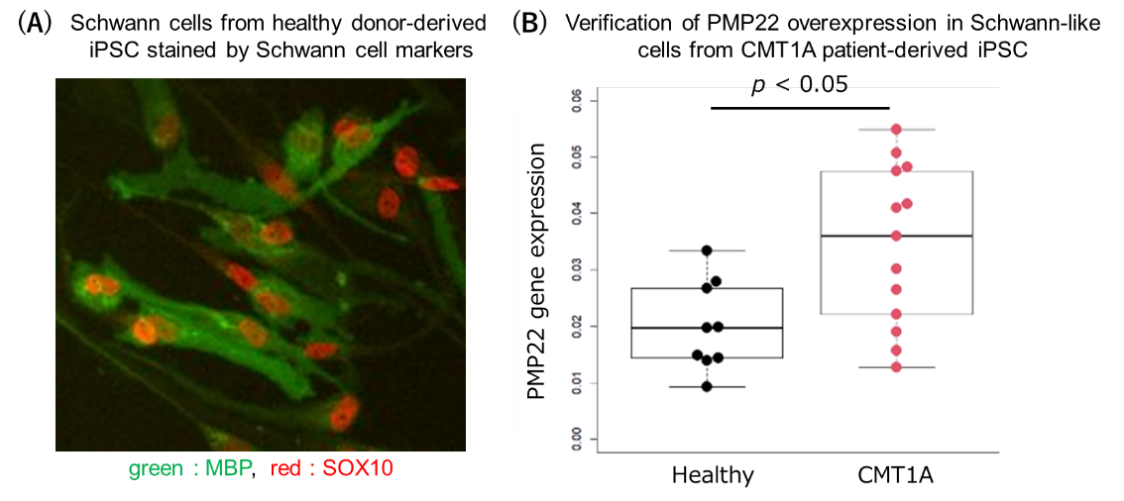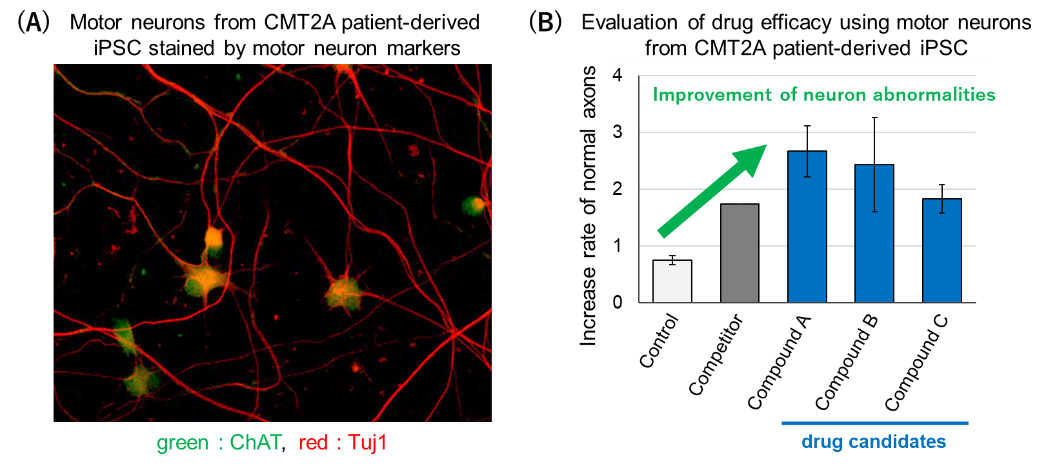Never miss an update from Larisa Sheloukhova
Create your free account to connect with Larisa Sheloukhova and thousands of other innovative organizations and professionals worldwide
Charcot-Marie-Tooth disease (CMT) is one of the most common rare diseases affecting approximately 1 in 2,500 - 5,000
people, or 3 million people in total worldwide. It is characterized by progressive peripheral neuropathy. The disease
appears in two main forms: demyelination of the myelin sheath, which is formed by Schwann cells wrapping around the
axon, or degeneration of the axon itself. There are various types of CMT caused by mutations in different genes. CMT1A,
caused by a duplication of the PMP22 gene, is the most common demyelinating type, affecting ~50% of individuals with
CMT. CMT2A, caused by mutations in the mitofusin-2 (MFN2) gene, is the most common axonal defect type. Gene
therapies and small molecules are under development for different CMT types, however, there are currently no available
treatments or cures for CMT patients. SCAD is a spin-off from Kyoto University that specializes in the development of
disease models using patient-derived iPS cell lines for CMT1A and 2A, conducting drug discovery research to clarify
pathology and explore therapeutic drugs, as well as pursuing cell therapy for neuropathies using pluripotent stem cells.
Technical Summary
For CMT1A, SCAD has developed a protocol to produce high-quality Schwann cells from human iPS cells. They first examined Schwann cells from normal iPS cells (Fig.1A). Subsequently, they derived two iPS cell lines from CMT1A patients and managed to produce Schwann-like cells. Examination of animal models of CMT1A indicate impaired Schwann cell differentiation(Fredrich et al.,Nature Medicine, 2014),which may explain the difficulty faced by SCAD in producing mature Schwann cells from the patient-derived iPSCs. This observation suggests that impaired Schwann cell differentiation is an important phenotype of the disease and could be a target for therapy development. SCAD confirmed that Schwann-like cells generated from patient-derived iPS cells had increased expression ofPMP22, recapitulating the disease mechanism (Fig.1B).
Figure 1. CMT1A disease modeling with Schwann cells.

For CMT2A,SCAD has developed a protocol to produce high-quality motor neurons from patient-derived iPS cells. They established three iPSC lines and utilized the derived neurons for drug screening (Fig.2A). Through this process, they successfully identified several drug candidates which demonstrated efficacy in improving axonal and mitochondrial defects in the cells (Fig.2B), as well as showing efficacy in CMT2A model mice.
Figure 2. CMT2A patient-derived iPSCs for disease modeling and drug development.

SCAD is currently seeking collaborators and/or strategic business partners to investigate the pathophysiology of CMT and conduct drug discovery research using patient-derived iPS cell lines. Additionally, SCAD is endeavoring to develop cell therapy for CMT1A using Schwann cells produced from pluripotent stem cell lines.
Technology Readiness Level
3
Drug screening has been validated in patient-derived iPS cells and a mouse model of CMT2A
Potential Applications
CMT1A and 2A disease modeling
CMT1A and 2A drug screening
Possible Collaboration Mode(s)
R&D collaboration
Licensing
Patent No
Patent pending (for CMT2A)
Inventor(s)
Norio Nakatsuji, Ph.D.,
Emeritus Prof. Kyoto Univ.
Takayuki Kiboku
Haruka Sato
Kyoto University was founded in 1897, the second university to be established in Japan. Kyoto University is among 10 National Designated Universities in Japan. It boasts 18 graduate schools, 10 faculties, 12 research institutes, and 26 centers and other establishments. Research conducted at Kyoto University spans the full spectrum of fields from social to natural science.
The outstanding research conducted at Kyoto University gives birth to useful technologies that could greatly benefit society. IAC (Office of Institutional Advancement and Communications) was established at Kyoto University to bridge the gap between researchers and industry. We facilitate joint research, technology transfer, creation of university startups, and provide entrepreneurial education. We are building a strong network of global industry partners to make sure basic research reaches the market.
Create your free account to connect with Larisa Sheloukhova and thousands of other innovative organizations and professionals worldwide
Send a request for information
to Larisa
Technology Offers on Innoget are directly posted
and managed by its members as well as evaluation of requests for information. Innoget is the trusted open innovation and science network aimed at directly connect industry needs with professionals online.
Need help requesting additional information or have questions regarding this Technology Offer?
Contact Innoget support